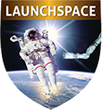Course Details
Course Summary
This course offers a detailed look and the launch vehicle payload integration process, starting at the beginning of a space mission and continuing through launch, with a detailed look at the expendable launch vehicle (ELV) payload and mission integration process. The course educates the attendee on deliverables, schedules, critical interfaces, requirements and verification management, and describing the roles and responsibilities required of key individuals and organizations involved in a spacecraft project. The mission integration systems engineering process is explored and the launch campaign including ground processing and critical events leading up to launch are discussed. Understanding and managing the critical interfaces, data, deliverables, schedules and requirements that the successful integration manager must implement are explored in detail. The significant technical content available in the Launch Vehicle Payload Planners guides is explored with detailed explanations offered to specific questions raised during the class. Mission integration challenges and solutions implemented imposed by payload supplied solid motors, upper stages and ground processing for nuclear and conventional payload integration are briefly described. At the conclusion of this course, the attendee will have a clear, end-to-end understanding of the launch vehicle payload mission integration process and insight into how to successfully execute this critical spacecraft engineering effort.
Course Materials
Include extensive notes and reference materials.
Who Should Attend
This course is intended for Project Managers, Mission System, Spacecraft System and Payload System Engineers, Principal Investigators, and future integration engineers, managers and supervisors of integration engineering staff. The focus is primarily on those who have never managed or experienced significant involvement in a launch vehicle payload and mission integration process including the management and coordination of the ground operations involved in a launch campaign.
What You Will Learn
How to recognize, define, tailor and successfully implement the critical requirements and limitations of the individual launch vehicle and spacecraft payload systems into a working launch system. How to effectively implement mechanical, electrical, communication and separating interfaces and systems. Fairing doors, payload physical access, contamination control techniques. Effectively using the Mission Planners Guides. Interacting with the range, payload and launch vehicle data deliverables and documents, effective use of pathfinders, payload contamination control, ground communications, ground processing. Conduct of the Mission Integration and Ground Operation Working Group meetings, critical milestones and events, schedules, processing and the launch campaign.
Course Outline
- Major Elements of Mission Integration Roles and Responsibilities.
Preliminary Planning Tasks. Government Agencies. The Mission Planners Guide. Launch Site Flow. - Launch Vehicle Interfaces
Payload Adaptors. Separation Systems and Tip-Off Dynamics. Umbilical, Electrical and RF Interfaces. Fairings. Static and Dynamic Envelopes. Fairing Doors and Physical Access. Environmental Controls, Cleanliness. Airborne Separating Interfaces. Purge Interfaces and Implementation. - Meetings, Schedules and Critical Events
Mission Integration Meetings. Integration Schedules, Pre-Launch Critical Milestones and Meetings. Ground Operation Working Groups. Managing Actions and Requirements. Successful Implementation of Schedules. How to Recognize Critical Issues, Events. Organizing and Running Efficient Integration Meetings. - Documents and Deliverables
Spacecraft Payload-Supplied Data and Analysis Products. Electronic Models. Interface Control Documents (ICD’s) and Interface requirements Documents (IRD’s). Launch Site Support Plans. Range Safety Documents. Requirements Management and Verifications. - The Launch Campaign
Payload Arrival, Early Payload and Launch Vehicle Integration Activities, Tests and Verifications. Processing Facility Interactions and Coordination with the Payload and Launch Vehicle. Payload Transport and Launch Vehicle Mating Roles, Responsibilities, Actions, Timelines, etc. Integration Flow. Spacecraft Mate and Consolidated Payload and Launch Vehicle Testing. Critical Pad Activities. Final Preparations for Launch. Launch and Post-Launch Activities. - Payload-Supplied Solid Motors and Upper Stages
Special Integration Challenges Posed by Payload-Supplied Kick Motors and Upper Stages. Safe and Arm Systems, Flight Termination Systems. Integrated Trajectory and Performance. Safety and Mission Assurance Challenges. Spinning and Thrust Vector Controlled Stages. - Nuclear-Powered Payload Integration
Introduction the Nuclear Systems (RTG’s, MMRTG’s, RHU’s, ASRG’s). Nuclear Mission Typical Integration Flow. Crew Certification. Pathfinders. An Overview of the Nuclear Launch Approval Process including the Data Books, Launch Vehicle Certification, Environmental Impact Statement, etc.
Instructor
Steven R. Vernon has over 20 years of experience in launch vehicle payload integration, spacecraft mechanical systems and mechanisms design, assembly and test operations. He has lead and managed payload launch vehicle integration efforts and launch campaigns on nuclear and conventional-powered spacecraft launched successfully from the US Eastern and Western Ranges. He has authored or co-authored 18 formal publications covering launch vehicle payload systems integration, spacecraft.
